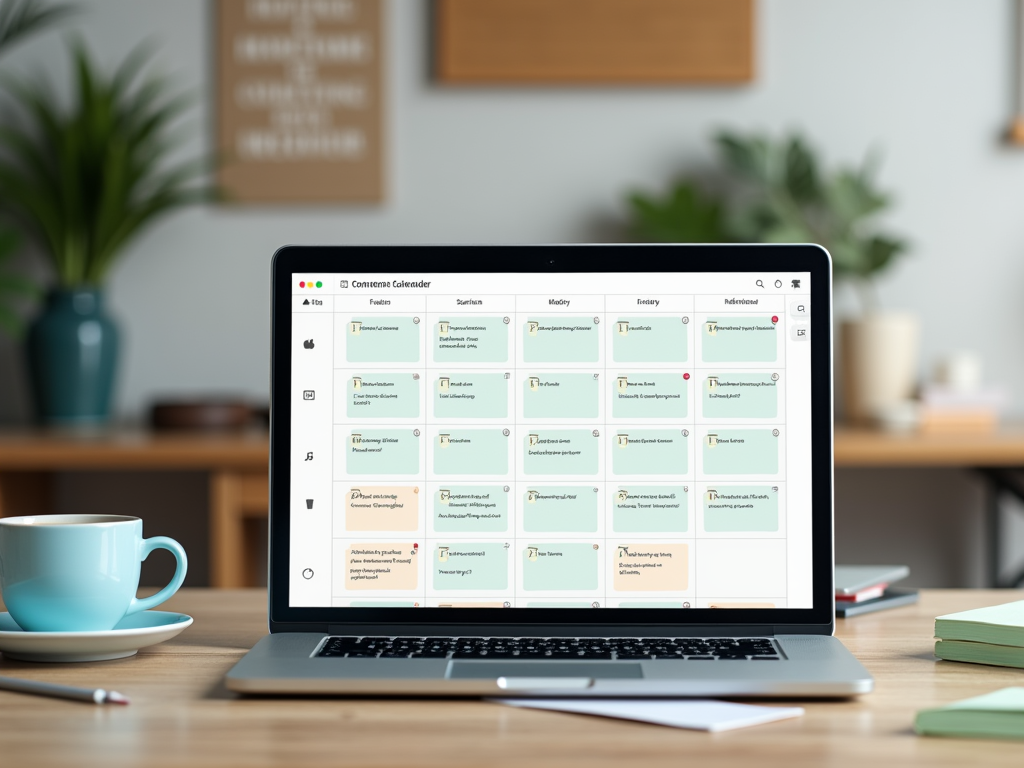Content marketing is a powerful strategy for lead generation, effectively attracting and engaging potential customers through valuable and relevant content. By creating and distributing content that resonates with your target audience, you can establish authority, foster trust, and drive conversions. In this article, we will explore the essential strategies for leveraging content marketing to generate leads for your business.
Understanding Content Marketing and Lead Generation

Before diving into tactics, it’s crucial to understand how content marketing aligns with lead generation. Content marketing involves creating informative and engaging content designed to inform, entertain, and persuade an audience. Lead generation, on the other hand, focuses on identifying and attracting individuals or companies interested in your products or services. The intersection of these two concepts is where you can nurture potential leads through strategic content creation, thereby moving them through the sales funnel.
To maximize the lead generation potential of your content marketing efforts, it is essential to:
- Identify your target audience and develop detailed buyer personas.
- Create high-quality content that addresses the needs and pain points of your audience.
- Implement SEO techniques to improve visibility and attract organic traffic.
- Utilize various content formats (blogs, videos, infographics) to engage users effectively.
- Analyze performance and adjust strategies based on data insights.
Creating Valuable and Relevant Content

The cornerstone of effective content marketing for lead generation is creating valuable and relevant content that speaks directly to your audience’s interests. This involves conducting thorough research to identify the topics that matter most to your target audience. Consider leveraging keyword research tools to find popular search terms related to your industry, which will inform your content strategy. Focus on creating content that addresses pain points, answers questions, and provides actionable solutions.
Additionally, utilizing a variety of formats can help cater to different preferences, maximizing engagement. Consider implementing:
- Blog Posts: In-depth articles that educate your audience.
- Videos: Engaging visual content that captures attention swiftly.
- Infographics: Concise visual representations of data for easy sharing.
- Podcasts: Audio content for on-the-go consumption.
- Ebooks: Comprehensive guides that provide in-depth knowledge.
Optimizing content for search engines is a vital step in ensuring that your lead generation efforts reach a wider audience. SEO techniques improve the visibility of your content in search engine results, making it easier for potential leads to find you. To optimize effectively, incorporate relevant keywords throughout your content in a natural way to enhance readability. Focus on long-tail keywords that are specific to your niche, as these tend to attract highly targeted leads.
Moreover, ensure that your content includes well-structured headers, descriptive meta tags, and internal and external links. This will not only improve SEO but also enhance usability and information flow. Finally, don’t underestimate the importance of a mobile-friendly website, as more users are accessing content via mobile devices. A responsive design will keep visitors engaged and encourage them to explore additional content.
Promoting Content to Generate Leads
Content promotion is just as crucial as content creation when it comes to lead generation. After producing high-quality content, it’s essential to get it in front of your audience. Utilize social media platforms to share your content and engage with followers who might benefit from it. Tailor your messages for each platform to optimize engagement—what works on Instagram might not work on LinkedIn.
Email marketing presents another vital avenue for content promotion. Sending newsletters featuring your latest content can keep your audience engaged and encourage leads to return to your site. Additionally, consider paid advertising options, such as Google Ads or social media ads, to further amplify the reach of your content. Invest in targeted campaigns to ensure that your content reaches those who are most likely to convert into leads.
Measuring Success and Refining Your Strategy
The final step in using content marketing for lead generation is tracking performance and refining strategies based on results. Use analytic tools to measure key performance indicators (KPIs) such as traffic sources, conversion rates, engagement rates, and bounce rates. By doing this, you can identify which types of content are driving leads and which are falling flat.
From the data gathered, make informed decisions to refine your content strategy. Experiment with different content types, promotional channels, and messaging to see what resonates best with your audience. Continuous improvement is vital; as market trends and audience preferences shift, your content marketing efforts must adapt accordingly.
Conclusion
In conclusion, content marketing is a potent tool for lead generation when executed thoughtfully and strategically. By creating valuable content that addresses your audience’s interests, optimizing it for search engines, promoting it effectively, and continuously measuring success, you can attract and convert leads into loyal customers. Those who invest time and resources into a well-structured content marketing strategy will reap the rewards of elevated brand awareness, authority, and ultimately, increased sales.
Frequently Asked Questions
1. What types of content should I create for lead generation?
Focus on producing blog posts, videos, infographics, podcasts, and ebooks that provide valuable information while addressing the needs of your target audience.
2. How do I identify my target audience?
Conduct market research, create buyer personas based on demographics, interests, and behavior, and analyze existing customer data to understand your ideal audience.
3. Should I promote my content on social media?
Absolutely! Promoting your content on social media is crucial for reaching a broader audience and engaging potential leads. Tailor your promotions for each platform.
4. How can I measure the success of my content marketing efforts?
Use analytic tools to track KPIs such as website traffic, conversion rates, and engagement metrics. This data will help you understand what’s working and what isn’t.
5. How often should I publish content?
Consistency is key. Develop a content calendar and publish regularly, whether that’s weekly, bi-weekly, or monthly, to keep your audience engaged and informed.
